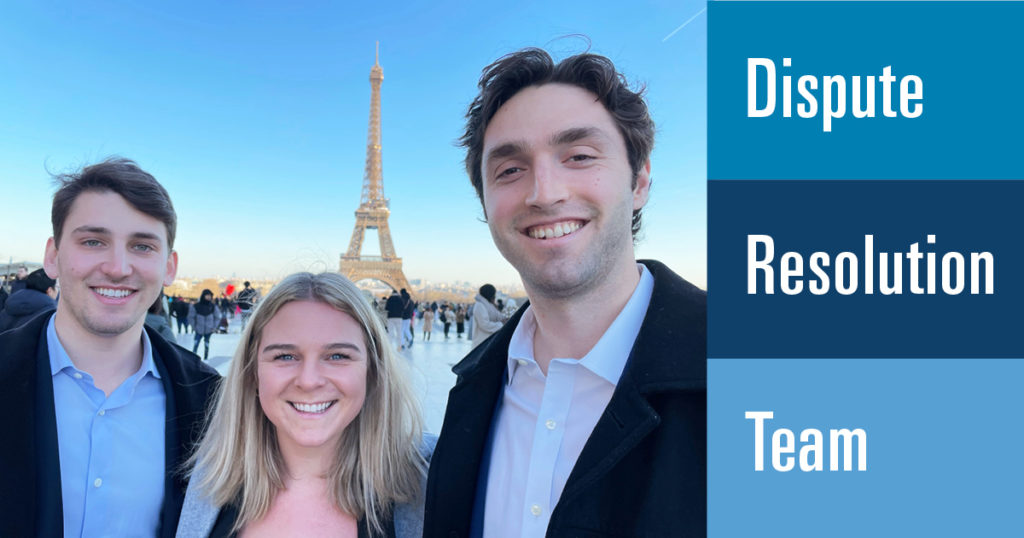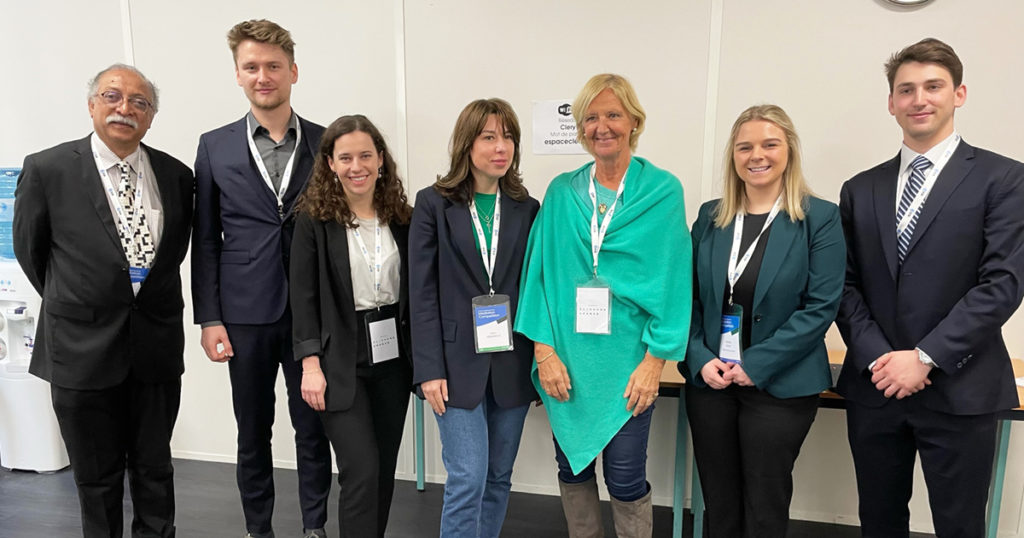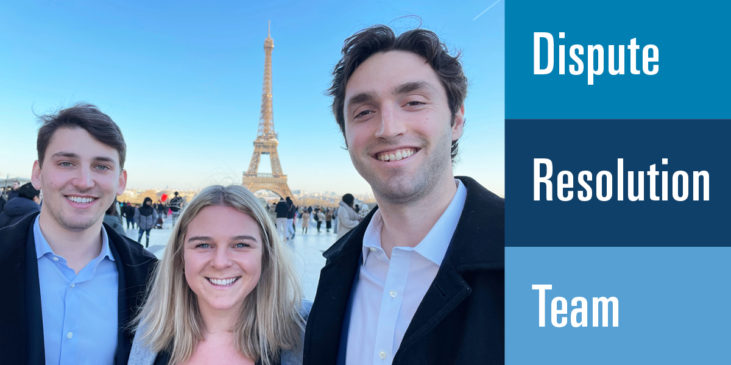
The Dispute Resolution Team (DRT) is a student-led organization that represents New York Law School in competitions based on alternative dispute resolution methods and lawyering skills. DRT members gain experience across a variety of practice areas by interviewing and counseling clients and by negotiating, mediating, and arbitrating common disputes.
Here, we hear from two team members as they recount their accomplishments at the ICC (International Chamber of Commerce) International Commercial Mediation Competition in Paris.
By Natalie Klein ’24 and Austin LaBorwit ’23
The ICC (International Chamber of Commerce) International Commercial Mediation Competition is one of the biggest educational competitions worldwide dedicated exclusively to international commercial mediation. In early 2023, 48 teams from 27 countries traveled to Paris for the five-day-long competition.
We, the members of the New York Law School Dispute Resolution Team, received notice of our opportunity to compete with only about two weeks to prepare.
Our preparation included studying and mastering the fact patterns and mooting practice rounds with our coach, Robert DiBenedetto ’23, and fellow Dispute Resolution Team members. We appreciated the exceptional feedback and guidance provided by Professor F. Peter Phillips ’87, Professor Kris Franklin, and Elaine Bromka in the weeks leading up to the competition.
Once we arrived in Paris, we were excited to begin the preliminaries over the first three days. Each round of the competition involved a commercial dispute, where one student assumed the role of the client and the other student served as counsel. The rounds involved various industries, including agriculture, imports and exports, international entertainment, and software development. The disputes required negotiations related to trademarks, COVID-19, climate change, changing consumer demands, and software malfunctions.
As we progressed through each round of the competition, we felt more and more comfortable working through the mediation process. We were excited to advance to the semifinals and final round of the competition. We believe—and many judges shared similar remarks—that our team’s strength came from our ability to work collaboratively in a way that genuinely represented an attorney-client relationship. Further, we prioritized actively listening to our competitors and used the mediator to ensure everyone was on the same page at each stage of the mediation process. We thoroughly enjoyed getting to know the following teams we competed against: University of Trento in Italy, Charles University in the Czech Republic, University of Vienna in Austria, University of Auckland in New Zealand, and NALSAR University of Law in India.
Every round included spectators from around the world. The first preliminary took place in a classroom-style setting, the semifinal in the Paris ICC headquarters, and the final round in an auditorium—on stage with microphones—in front of over 100 audience members. Because the facts were so brilliantly written, we could walk on stage feeling confident, even though we only had 16 hours to read and prepare the final fact pattern. The final 85-minute mediation session was exciting, and although it was our first time competing on a stage in front of a large audience, we strongly focused on collaborating with the other team and the mediator as if it were a real-life mediation session. And as a result, it felt like we were the only five people in the room, working together towards our shared common goal of reaching an amicable deal for both sides.
The world’s leading dispute resolution specialists served as mediators and judges and provided phenomenal feedback and advice which we applied as we progressed through the competition. And throughout the week, we were able to network and discuss with the esteemed professionals following our rounds and at organized ICC events.
Our team found the social and networking events as exciting as the competition. We networked with students, attorneys, and professionals from around the world and gained a cross-cultural perspective on the international legal community. It was wonderful to learn about the different approaches to dispute resolution all around the world. Professor Phillips introduced us to many members of the international Alternative Dispute Resolution community who were extraordinarily supportive throughout the competition.
We are so thrilled to be the first runner-up in this international competition. We could not have done it without the immense support from the NYLS community, especially from Professor Phillips.


